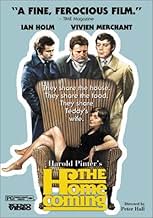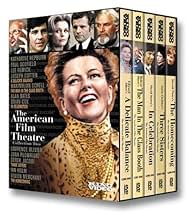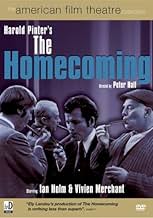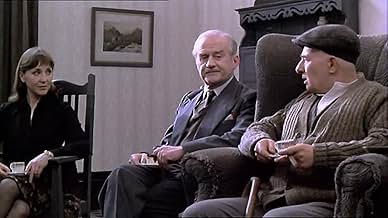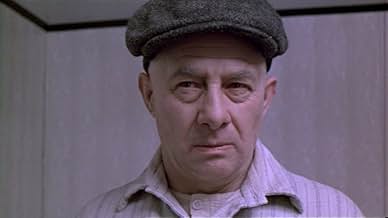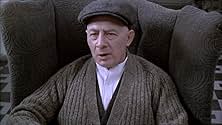In a dreary North London flat, the site of perpetual psychological warfare, a philosophy professor visits his family after a nine-year absence, and introduces the four men, father, uncle, an... Read allIn a dreary North London flat, the site of perpetual psychological warfare, a philosophy professor visits his family after a nine-year absence, and introduces the four men, father, uncle, and two brothers, to his wife.In a dreary North London flat, the site of perpetual psychological warfare, a philosophy professor visits his family after a nine-year absence, and introduces the four men, father, uncle, and two brothers, to his wife.
- Nominated for 1 BAFTA Award
- 1 win & 1 nomination total
Featured reviews
I wish that I could talk with the author of the comments more to get an understanding of his reaction to the film. For the first hour or so, I was thinking some of the same things about it. I slogged through what I thought was just going to be a lot of angry, repressed people in a rotten, emotionally poisoned family just to say that I had seen it.
At first I found it very irritating that people would sling words at each other with barbs of hatred attached. A lot of the dialog seemed stilted and somewhat like lectures. And the words and the emotions often had very little to do with each other. Eventually I realized that this was just fleshing out the characters. It even seemed like a substitute for conversation by people that had completely forgotten how to communicate with each other.
During the last thirty minutes or so we've been given a tour of what five different people will do when immersed in an aquarium devoid of the oxygen of any sort of positive emotional bonds. What Pinter seems to be doing is taking five possible approaches and carrying them to their extremes. Although the possible ways that each character could have developed are endless, the thrust of each is representative: sex, violence, and shut-down.
I found myself most fascinated with trying to guess what Teddy was thinking and feeling. I imagined mostly bottled rage, but perhaps instead, relief at leaving it all behind. In a way Ruth's character was the most fascinating because she had only tangentially been exposed to the family by marrying into it. But by the end of the play, she had developed a complete, and for her, necessary response to her environment.
To the author of "My mind parasites must be dead", I hope that it had no resonance with you because your family life bore no resemblance to the play. For most of the rest of us, there was probably a lot too much of "oh, yeah", "unh-huh", "yep", "been there, done that", "that's just like my uncle/brother/dad/me." Painful but cathartic.
It's a fine adaptation of this one-set play, and director Peter Hall leaves it in that set - there is one shot where Miss Merchant steps onto the street for a walk. He does move the camera around for a constant variation in viewpoint. The actors, who include Cyril Cusack and Ian Holm (the role won his m a Tony) is superb.
I have some aesthetic issues with Pinter's works. Like Albee's WHO'S AFRAID OF VIRGINIA WOOLF? this is an exercise in revealing the ugly sides of people in a constant storm of abuse. The plot, therefore, consists of the revelation of character to the audience, rather than the more usual arc of character change. I also wonder - probably irrelevantly - about Pinter's home life. The IMDb claims that Pinter's family was close. Why then did he write plays about the miseries of being in a family?
I think that if you wish to see what it looks like when you grind five thousand feet of misery, this is a fine movie. Me, I think I'll watch a comedy.
A few of the other commentators have questioned whether it works as a piece of 'cinema'. But with writing and acting this vital and rich the query becomes redundant. It's a filmed record of a stage play in which color and framing are used to provide texture and ambiance for the text. The absence of any unnecessary cinematic flourishes contributes to the stark, claustrophobic atmosphere.
I would argue that the piece is more effective here, atmospherically speaking at least, than it ever could be on stage. The screen filling close-ups, slow fades to black, and subtle, almost imperceptible camera movement all add the palpable sense of entrapment, tension and menace.
The performances are all majestic. But my favourite is the astonishing one given by the wonderful Vivien Merchant. Her work in this and Sidney Lumet's 'The Offence' (in the same year) stand, for me, as being amongst the greatest performances given on screen by any actor. Ever. She can switch from poignantly lost and alone, to ironic, to chillingly manipulative with a glance. Whilst always radiating an almost heartbreaking aura of emotional privation and defeat. Her premature death was a genuine tragedy.
Am I alone in finding such a spare, bleak work so strangely comforting, even uplifting? I hope not.
Did you know
- Quotes
Max: Mind you, she wasn't such a bad woman. Even though it made me sick just to look at her rotten stinking face, she wasn't such a bad bitch. I gave her the best bleeding years of my life, anyway.
Lenny: Plug it, will you, you stupid sod, I'm trying to read the paper.
Max: Listen! I'll chop your spine off, you talk to me like that! You understand? Talking to your lousy filthy father like that!
Lenny: You know what, you're getting demented.
- ConnectionsReferenced in Jake's Progress (1995)
- How long is The Homecoming?Powered by Alexa
Details
- Runtime
- 1h 51m(111 min)
- Sound mix
- Aspect ratio
- 1.78 : 1



